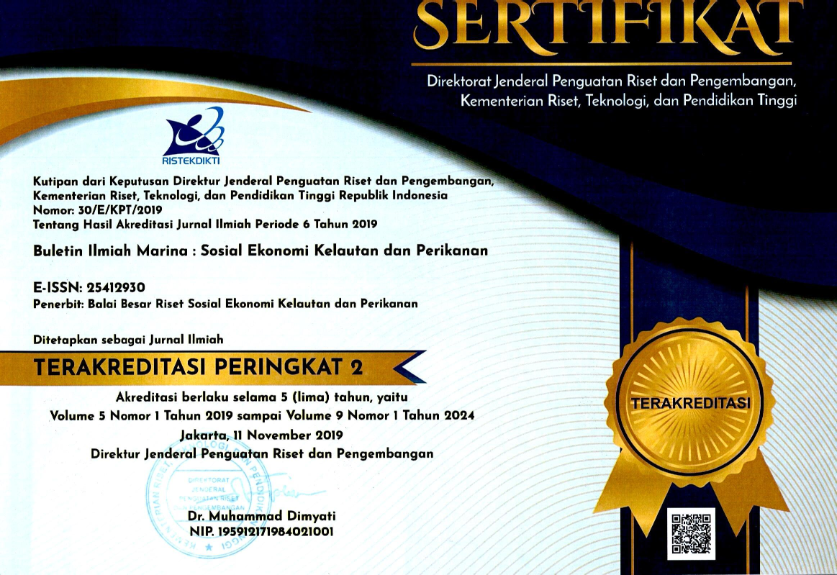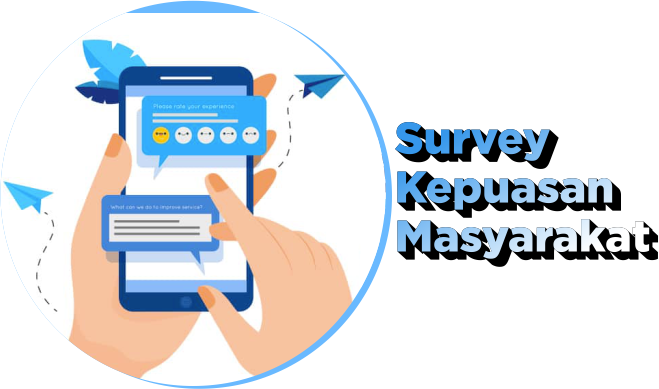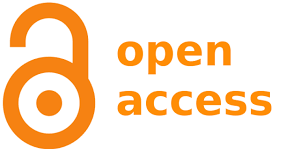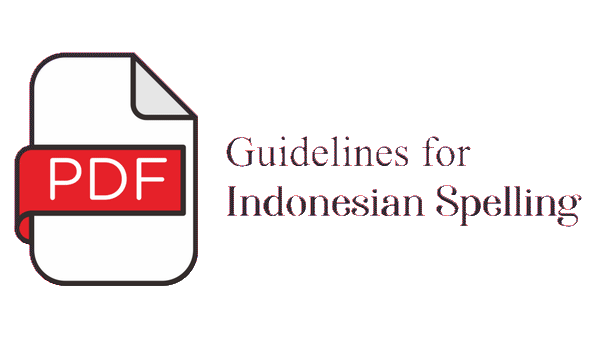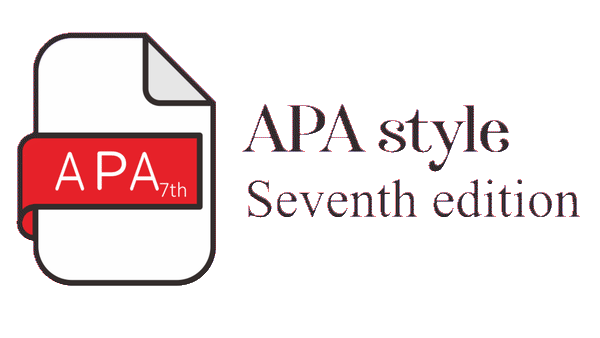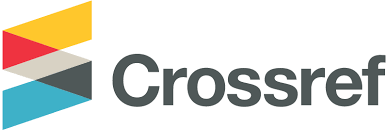Hubungan Pembiayaan Berkelanjutan dan Keterlibatan Pemangku Kepentingan Dalam Pengembangan Wisata Bahari
Abstract
Penelitian ini bertujuan untuk mengeksplorasi peran pembiayaan berkelanjutan dan keterlibatan pemangku kepentingan dalam mendorong kinerja ekonomi berkelanjutan; dan meningkatkan kesadaran terhadap dampak lingkungan dalam sektor pariwisata bahari. Penelitian dilakukan pada periode Januari hingga Maret 2024 di tiga destinasi utama di Indonesia: Raja Ampat, Bali, dan Pulau Pulau Komodo dengan pendekatan kuantitatif. Data primer dikumpulkan melalui kuesioner terstruktur kepada 167 responden, yang terdiri atas pelaku pariwisata, pembuat kebijakan, komunitas lokal, Lembaga Swadaya Masyarakat (LSM), dan akademisi. Responden dipilih secara purposive sesuai dengan keterlibatan mereka dalam isu pariwisata berkelanjutan. Analisis dilakukan dengan menggunakan metode Structural Equation Modeling (SEM) untuk menguji hubungan antara variabel kesiapan untuk mendukung, pembiayaan berkelanjutan, kinerja ekonomi, kesadaran dampak lingkungan, dan dukungan kebijakan. Hasil penelitian menunjukkan bahwa kesiapan untuk mendukung berpengaruh signifikan terhadap pembiayaan berkelanjutan, kinerja ekonomi, dan kesadaran lingkungan. Pembiayaan berkelanjutan lebih kuat memengaruhi kesadaran lingkungan dibandingkan kinerja ekonomi. Sementara itu, kesadaran lingkungan terbukti sebagai faktor utama yang meningkatkan dukungan terhadap kebijakan keberlanjutan. Temuan ini menegaskan bahwa keterlibatan pemangku kepentingan dan mekanisme pembiayaan yang berkelanjutan menjadi fondasi penting bagi pertumbuhan ekonomi jangka panjang dan kebijakan berbasis lingkungan dalam pengembangan pariwisata bahari di wilayah yang memiliki keanekaragaman hayati tinggi Pulau Komodo Pulau Komodo.
Title: Relationship Between Sustainable Financing and Stakeholder Engagement in Marine Tourism Development
This study investigates the role of sustainable financing and stakeholder engagement in enhancing sustainable economic performance and raising awareness of environmental impacts within the marine tourism sector. The research was conducted between January and March 2024 across three prominent marine tourism destinations in Indonesia, namely Raja Ampat, Bali, and the Komodo Islands. Employing a quantitative approach, primary data were collected through structured questionnaires administered to 167 purposively selected respondents, including tourism operators, policymakers, local community members, representatives of non-governmental organisations (NGOs), and academics—each selected based on their involvement in sustainable tourism initiatives. Data were analysed using Structural Equation Modeling (SEM) to assess the relationships among key variables: readiness to support, sustainable financing, economic performance, environmental impact awareness, and policy support. The findings indicate that readiness to support exerts a significant positive influence on sustainable financing, economic performance, and environmental awareness. Moreover, sustainable financing has a stronger effect on raising environmental awareness than on enhancing economic performance. Environmental awareness, in turn, emerged as a critical determinant of support for sustainability-oriented policies. These results highlight that stakeholder engagement, together with well-structured sustainable financing mechanisms, forms a foundational basis for long-term economic development and environmentally responsible policymaking in marine tourism, particularly in biodiversity-rich areas such as the Komodo Islands.
Keywords
Full Text:
PDFReferences
Aboaba, K. O., Sanusi, R. A., Akamo, A. A., & Bello, B. (2022). Double hurdle approach to consumer awareness, perception of, and willingness to pay for greenhouse vegetables. International Journal of Vegetable Science, 28(1), 15–24. https://doi.org/10.1080/19315260.2020.1819929
Adam, I. (2022). Segments of tourists’ behavioral responses to single-use plastic waste at beaches. Tourism in Marine Environments, 17(1), 85–101. Scopus. https://doi.org/10.3727/154427322X16548495694333
Alavi, J., & Yasin, M. M. (2000). A systematic approach to tourism policy. Journal of Business Research, 48(2), 147–156.
Amin, S. (2020). Diversity, tourism, and economic development: A global perspective. Tourism Analysis, 25(1), 21–41.
Antara. (2021, July 7). KLHK Catat Setengah Juta Ton Sampah Plastik di Lautan Indonesia. tirto.id. https://tirto.id/klhk-catat-setengah-juta-ton-sampah-plastik-di-lautan-indonesia-ghxv
Apps, K., Dimmock, K., Lloyd, D. J., & Huveneers, C. (2019). What values do tourists place on a marine protected area? White shark cage-dive tourists and the Neptune Islands. Tourism in Marine Environments, 14(1), 19–30. Scopus. https://doi.org/10.3727/154427319X15567690274868
Arabi, S., & Nahman, A. (2020). Impacts of marine plastic on ecosystem services and economy: State of South African research. South African Journal of Science, 116(5–6). Scopus. https://doi.org/10.17159/sajs.2020/7695
Atmodjo, E., Lamers, M., & Mol, A. (2017). Financing marine conservation tourism: Governing entrance fees in Raja Ampat, Indonesia. Marine Policy, 78, 181–188. https://doi.org/10.1016/j.marpol.2017.01.023
Bideci, C., & Bideci, M. (2021). Seeking the unusual but sustainable: Scuba diving experience. In Routledge Handb. Of the Tourist Experience (pp. 378–390). Taylor and Francis; Scopus. https://doi.org/10.4324/9781003219866-31
Briandana, R., Doktoralina, C. M., & Sukmajati, D. (2018). Promotion analysis of marine tourism in Indonesia: A case study. European Research Studies Journal, 21(1), 602–613. Scopus. https://doi.org/10.35808/ersj/973
Carvache-Franco, M., Carvache-Franco, W., Carvache-Franco, O., Hernández-Lara, A. B., & Buele, C. V. (2020). Segmentation, motivation, and sociodemographic aspects of tourist demand in a coastal marine destination: A case study in Manta (Ecuador). Current Issues in Tourism, 23(10), 1234–1247. Scopus. https://doi.org/10.1080/13683500.2019.1600476
Carvache-Franco, M., Carvache-Franco, W., Carvache-Franco, O., & Solis-Radilla, M. M. (2021). Tourism market segmentation applied to coastal and marine destinations: A study from Acapulco, Mexico. Sustainability (Switzerland), 13(24). Scopus. https://doi.org/10.3390/su132413903
Cheng, T.-M., & Wu, H. C. (2015). How do environmental knowledge, environmental sensitivity, and place attachment affect environmentally responsible behavior? An integrated approach for sustainable island tourism. Journal of Sustainable Tourism, 23(4), 557–576.
Dikou, A. (2011). Ecotourism in marine protected areas: Development, impacts and management—A critical review. In Ecotourism: Manage., Dev. And Impact (pp. 1–42). Nova Science Publishers, Inc.; Scopus. https://www.scopus.com/inward/record.uri?eid=2-s2.0-84897308434&partnerID=40&md5=6e81769a49a4cd0cd57b6617536e8f63
Dimitrovski, D., Lemmetyinen, A., Nieminen, L., & Pohjola, T. (2021). Understanding coastal and marine tourism sustainability—A multi-stakeholder analysis. Journal of Destination Marketing & Management, 19, 100554. https://doi.org/10.1016/j.jdmm.2021.100554
Duong, L. H., Phan, Q. D., Nguyen, T. T., Huynh, D. V., Truong, T. T., & Duong, K. Q. (2022). Understanding Tourists’ Behavioral Intention and Destination Support in Post-pandemic Recovery: The Case of the Vietnamese Domestic Market. Sustainability, 14(16), Article 16. https://doi.org/10.3390/su14169969
Fahlevi, M. (2023). A Systematic Literature Review on Marine Tourism in Business Management: State of the Art and Future Research Agenda. Journal of Tourism and Services, 14(27), 299–321. https://doi.org/10.29036/jots.v14i27.549
Fahlevi, M., Rabiah, A. S., Pradipta, I. A., & Marta, A. (2020). Tourism and Absorption of The Labor Force in Indonesia: A Strategy for Development. 16001, 2–6.
Hair, J. F., Hult, G. T. M., Ringle, C. M., & Sarstedt, M. (2017). A Primer on Partial Least Squares Structural Equation Modeling (PLS-SEM) (2nd ed.). Sage.
Henseler, J., Ringle, C. M., & Sarstedt, M. (2015). A new criterion for assessing discriminant validity in variance-based structural equation modeling. Journal of the Academy of Marketing Science, 43(1), 115–135.
IBEKA. (2024, January 18). Eksplorasi Keindahan Wisata Bahari: Sukses dan Berkelanjutan. IBEKA. https://ibeka.or.id/3779-2/
Kang, H. (2021). Sample size determination and power analysis using the G*Power software. Journal of Educational Evaluation for Health Professions, 18. https://doi.org/10.3352/jeehp.2021.18.17
Kemenparekraf. (2021). Tren Pariwisata Indonesia di Tengah Pandemi. https://kemenparekraf.go.id/ragam-pariwisata/Tren-Pariwisata-Indonesia-di-Tengah-Pandemi
King, C., Iba, W., & Clifton, J. (2021). Reimagining resilience: COVID-19 and marine tourism in Indonesia. Current Issues in Tourism, 24(19), 2784–2800.
Lai, W.-H., & Vinh, N. Q. (2013). Online promotion and its influence on destination awareness and loyalty in the tourism industry. Advances in Management and Applied Economics, 3(3), 15.
Lasso, A., & Dahles, H. (2018). Are tourism livelihoods sustainable? Tourism development and economic transformation on Pulau Komodo Island, Indonesia. Asia Pacific Journal of Tourism Research, 23(5), 473–485. https://doi.org/10.1080/10941665.2018.1467939
Lee, J. S.-H., & Oh, C.-O. (2018). The Causal Effects of Place Attachment and Tourism Development on Coastal Residents’ Environmentally Responsible Behavior. Coastal Management, 46(3), 176–190. https://doi.org/10.1080/08920753.2018.1451728
Likert, R. (1932). A technique for the measurement of attitudes. Archives of Psychology.
Lind, D. A., Marchal, W. G., & Wathen, S. A. (2018). Statistical Techniques in Business & Economics (17th ed., p. 897). McGraw Hill Education.
Lo, M.-C., Chin, C.-H., & Law, F.-Y. (2019). Tourists’ perspectives on hard and soft services toward rural tourism destination competitiveness: Community support as a moderator. Tourism and Hospitality Research, 19(2), 139–157.
Ringle, C. M., Sarstedt, M., Mitchell, R., & Gudergan, S. P. (2020). Partial least squares structural equation modeling in HRM research. The International Journal of Human Resource Management, 31(12), 1617–1643.
Rodenburg, E. E. (1980). The effects of scale in economic development: Tourism in Bali. Annals of Tourism Research, 7(2), 177–196. https://doi.org/10.1016/0160-7383(80)90003-1
Sagita, M., Novianti, A., & Ichsan, A. (2020). Potensi Archipelago dan Marine Tourism untuk Pariwisata Berkelanjutan Indonesia. kumparan. https://kumparan.com/kumparantravel/potensi-archipelago-dan-marine-tourism-untuk-pariwisata-berkelanjutan-indonesia-1uKagOOOf1F
Sahri, A., Mustika, P. L. K., Dewanto, H. Y., & Murk, A. J. (2020). A critical review of marine mammal governance and protection in Indonesia. Marine Policy, 117. Scopus. https://doi.org/10.1016/j.marpol.2020.103893
Santoso, S., Widyanty, W., Nurhidajat, R., Ramadhani Marfatah, M., Mahmud, G., Fahlevi, M., Aljuaid, M., Zhghenti, T., & Shahid, D. (2022). System dynamics modeling for developing an agrotourism-creative economy in the framework of the village innovation system. Frontiers in Environmental Science, 10, 962235.
Saunders, M., Lewis, P., & Thornhill, A. (2009). Research Methods for Business Students (5th ed.). Prentice Hall.
Scholtens, B. (2006). Finance as a Driver of Corporate Social Responsibility. Journal of Business Ethics, 68(1), 19–33. https://doi.org/10.1007/s10551-006-9037-1
Sekaran, U., & Bougie, R. (2016). Research methods for business: A skill building approach. John Wiley & Sons.
Slovin, M. B., Sushka, M. E., & Polonchek, J. A. (1993). The Value of Bank Durability: Borrowers as Bank Stakeholders. The Journal of Finance, 48(1), 247–266.
DOI: http://dx.doi.org/10.15578/marina.v11i1.15096
Refbacks
- There are currently no refbacks.
Indexed by:
---------------------------------------------------------------------------------------
Published by
Balai Besar Riset Sosial Ekonomi Kelautan dan Perikanan
in collaboration with
Indonesian Marine and Fisheries Socio-Economics Research Network

This work is licensed under a Creative Commons Attribution-NonCommercial-ShareAlike 4.0 International License.

